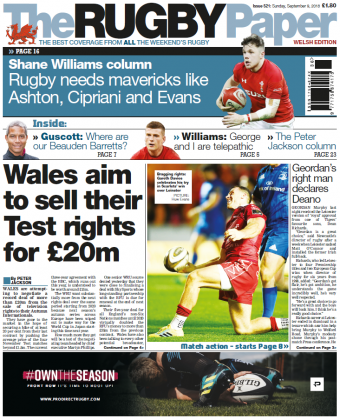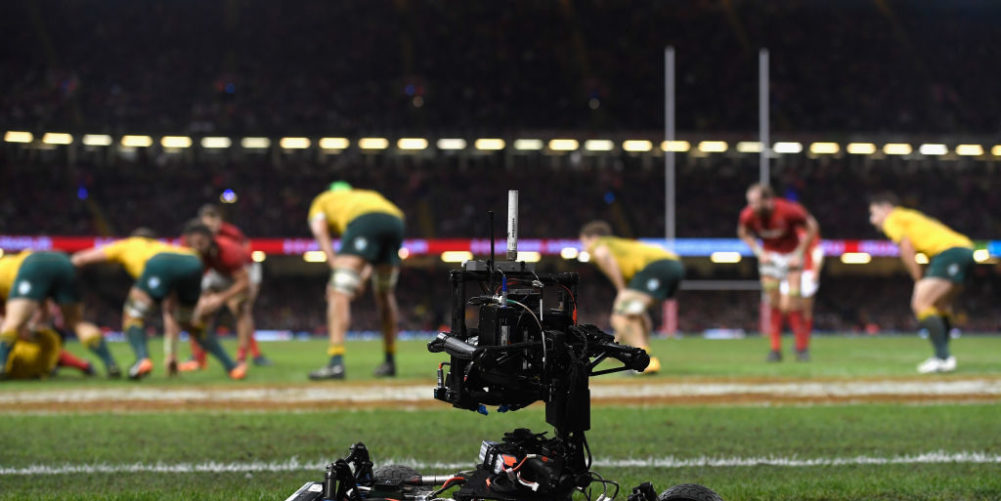By Peter Jackson
Wales are attempting to negotiate a record deal of more than £20m from the sale of television rights to their Autumn Internationals.
They have gone to the market in the hope of securing a hike of at least 20 per cent from their last contract by pushing the average price of the four November Test matches beyond £1.5m. The current three-year agreement with the BBC, which runs out this year, is understood to be worth around £15m.
The WRU want substantially more from the next rights deal over the same period starting from 2020 because next season’s autumn series across Europe have been wiped out to make way for the World Cup in Japan starting this time next year.
How much more they get will be a test of the negotiating team headed by chief executive Martyn Phillips.
One senior WRU source denied yesterday that they were close to finalising a deal with Sky Sports whose long-standing partnership with the RFU is due for renewal at the end of next season.
Their five-year deal for all England‘s non-Six Nations matches until 2020 virtually doubled the RFU’s money to more than £35m from the previous contract. Wales have also been talking to every other potential broadcaster, including BT Sport, ITV, Channel 4 and the BBC.
In an ever-changing landscape, Ireland have moved their autumn Tests from Sky to Channel 4. Their move away from satellite television back to terrestrial takes effect from this autumn, a series which includes the showdown between the world’s top two ranked teams, Ireland and New Zealand, in Dublin on November 17.
Ireland’s pre-World Cup home friendly against Wales next August is part of the Channel 4 contract. Wales’ home and away warm-ups against England, as revealed by The Rugby Paper six weeks ago, are expected to be shown on Sky late next summer with the old rivals splitting the television money.
Income from those matches and the home return against Ireland will go some way towards off-setting the revenue lost from the suspension of the November internationals during a World Cup year.
The WRU says it has cast the net ‘far and wide’ and talked to ‘some of the newer entrants to the market.’ Phillips said: ‘The television market in sport is changing rapidly and we want to be at the forefront of that.’
If the BBC lose the autumn matches, as seems likely, they will still have the blue riband of rugby championships, the Six Nations, albeit in tandem with ITV. ‘’The WRU is still courting all parties,” an insider said. ‘’They’ll go with the highest bidder although finding a broadcaster prepared to pay them what they want could be a struggle.”
Wales, in tandem with Scotland, have over-estimated the value of international rugby as the Six Nations found to its cost last season. The two countries rejected the tournament’s title sponsorship deal and instructed Six Nations chief executive John Feehan to go back to the market place.
He failed and by then the title sponsors, RBS, withdrew their offer leaving the Six Nations no alternative but to accept a lower price. A month after the tournament ended with Ireland celebrating a second Grand Slam, the Six Nations announced that Feehan had ‘stood down.’
The Rugby Paper is on sale all year round! Keep abreast of your club’s activities throughout the season by subscribing: http://bit.ly/TRP-Sub
























